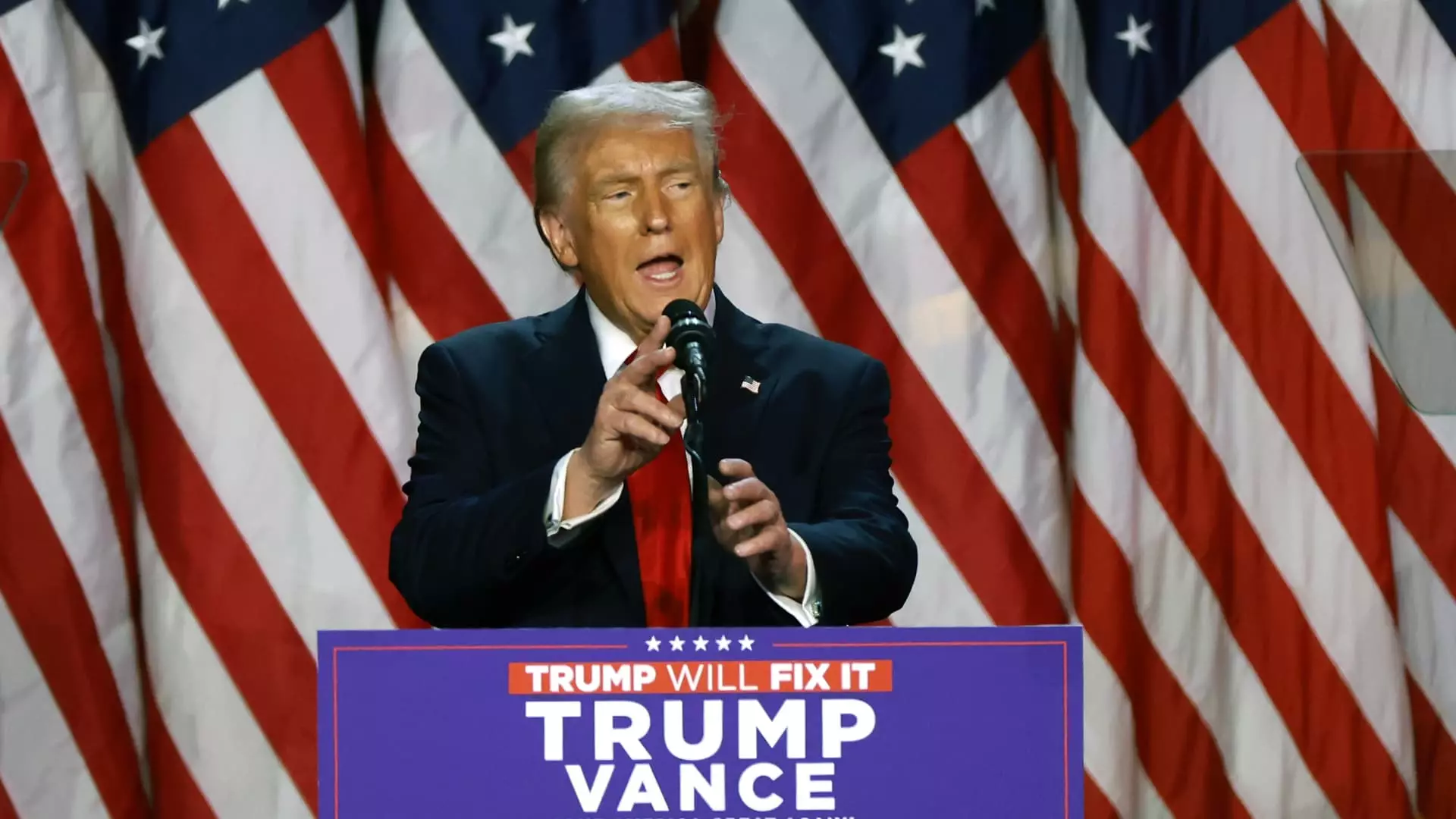The recent victory of President-elect Donald Trump in the 2024 election triggered a surge in stock market indices, with the Dow Jones, S&P 500, and Nasdaq all reaching unprecedented heights shortly after the new year began. Coupled with the Federal Reserve’s unexpected decision to cut interest rates, Wall Street experienced one of its most robust weeks in recent history. However, this rapid market improvement starkly contrasts with the sentiments of many average Americans, raising the question: why the divergence? Financial experts have coined the term “vibecession” to describe this phenomenon, where the vibrancy of market indicators misaligns with the experiential reality of individuals’ financial circumstances. In such a climate, it becomes essential to pivot away from macroeconomic narratives and focus on actionable strategies that influence personal financial stability.
Understanding the Vibecession Effect
Many individuals might find themselves puzzled by the market’s enthusiasm in light of their own economic challenges. While surges in stock prices often signal increased corporate profitability and economic growth, many Americans remain grappling with issues such as rising living costs, stagnant wages, and increasing debt. Financial advisors emphasize that while the government and markets operate within their own cycles, individual mindset and financial management should not be overshadowed by external noise. This means that individuals should prioritize their financial health independently of government policies or election outcomes.
Strategies to Enhance Your Financial Wellness
In times of economic uncertainty, taking control of your finances is paramount. Here are five actionable strategies individuals can adopt to foster a more secure financial future despite the volatility in the markets.
**1. Build a Robust Emergency Fund**
Establishing an emergency fund is foundational to achieving financial security. Financial planners suggest aiming to save at least three to six months’ worth of living expenses in a high-yield savings account. This buffer not only prepares individuals for unforeseen expenditures but also serves as a source of peace amid financial turbulence. Having quick access to liquid savings can alleviate stress caused by sudden job loss or significant expenses, establishing a safety net during uncertain times.
**2. Evaluate Retirement Savings Options**
With the complexities of tax-advantaged retirement accounts like 401(k)s and IRAs, it’s critical to assess and boost your savings strategies actively. Investigate the differences between traditional and Roth accounts to maximize tax efficiencies. For those employed, take full advantage of employer contributions, as they can significantly amplify your retirement savings. Engagement in open enrollment processes offers a chance to review health benefits and leverage tax-efficient options such as Health Savings Accounts (HSAs), which provide triple tax advantages: contributions go in pre-tax, they grow tax-free, and withdrawals for qualifying expenses are tax-exempt.
**3. Tackle Debt Strategically**
Addressing high-interest debts, especially credit card balances, should be a priority. Cutting out unnecessary spending and possibly seeking assistance from certified credit counseling services can be advantageous. Many nonprofit organizations offer resources to devise a plan for paying down debt more efficiently. Reducing debt not only enhances financial flexibility but also positions individuals to better withstand shifts in monetary policy or economic fluctuations.
**4. Discover Unclaimed Assets**
Another potential avenue for improving one’s financial situation is to uncover any unclaimed assets or “missing money.” Various websites, including those run by state treasurers, can help people locate forgotten funds tied to old accounts or property. Reclaiming this money may require minimal effort but could result in a crucial financial windfall.
**5. Stay Committed to Long-Term Financial Goals**
The tumultuous nature of financial markets can incite fear and impulsive decisions. However, it is crucial to maintain a long-term perspective. Advisors recommend regularly reviewing and adjusting financial goals rather than reacting to short-term economic shifts. Establishing a sound financial plan with clear objectives and regularly revisiting these goals allows individuals to remain focused and resilient, regardless of which political party occupies the White House.
The marked dissonance between market performance and personal sentiment underscores the importance of self-directed financial practices. Individuals are encouraged to prioritize personal financial strategies that can be controlled rather than becoming overwhelmed by external economic narratives. Implementing practices such as building emergency funds, optimizing retirement contributions, and tackling debt can significantly improve one’s financial wellness. By focusing on these foundational aspects, individuals can weather economic storms and cultivate a stable financial future, irrespective of wider market fluctuations or political changes.

